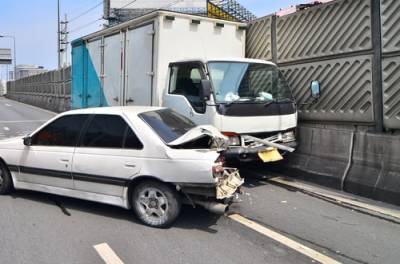Illinois’s Negligence Law: Modified Comparative Fault
 Suffering injuries from an accident can have a devastating impact on your livelihood. Whether the accident involves a car crash, a slip and fall, or another incident, unexpected injuries can have profound financial and non-financial consequences. Pursuing a personal injury claim greatly focuses on negligence and holding the at-fault party accountable. However, when both involved parties share the responsibility, the case can become complex. Illinois follows a legal doctrine called comparative negligence in shared-fault accidents. The laws regarding comparative negligence should be thoroughly considered when pursuing a personal injury claim in Illinois.
Suffering injuries from an accident can have a devastating impact on your livelihood. Whether the accident involves a car crash, a slip and fall, or another incident, unexpected injuries can have profound financial and non-financial consequences. Pursuing a personal injury claim greatly focuses on negligence and holding the at-fault party accountable. However, when both involved parties share the responsibility, the case can become complex. Illinois follows a legal doctrine called comparative negligence in shared-fault accidents. The laws regarding comparative negligence should be thoroughly considered when pursuing a personal injury claim in Illinois.
Understanding Comparative Negligence
One of the most conflicting tasks after a traffic accident is determining who was responsible for the crash. In some cases, the fault is very obvious, however, when it is not as apparent, it can complicate the accident further. The concept of comparative fault, or comparative negligence, comes into play when both parties involved share the responsibility for the accident, specifically when people or property is damaged as a result.
Some states apply pure comparative negligence, however, Illinois has adopted a new standard for recovering damages after an accident, referred to as modified comparative negligence. Modified comparative negligence is the most popular approach to establishing fault after an accident and determining recoverable damages. This legal doctrine states that a party will not receive compensation if they are found to be equally negligent or more negligent for the resulting injuries or property damage than the other liable parties. If the injured party is less than 50 percent responsible for the injuries, the recoverable amount is reduced by the degree of the receiving party’s negligence
It is important to note that if an individual does pursue a personal injury claim, the insurance companies will likely use this law to their advantage and use the plaintiff’s degree of fault in an attempt to lower the offered compensation.
Pursuing a Personal Injury Claim with Modified Comparative Negligence
If you have been injured in an accident due to the negligence of another individual, you may be entitled to receive compensation. This may be possible through a personal injury claim, directed at the at-fault party or insurance company. It may also be necessary to file a lawsuit and go to court to recover the damages you are entitled to
Before heading to court, it is crucial to consider how Illinois’s modified comparative negligence laws could affect your case. Modified comparative negligence could affect both the amount you are eligible to recover and how important hiring a lawyer is. A knowledgeable personal injury attorney can provide guidance in disproving allegations of negligence against you and help to gather evidence against the responsible party. An attorney can also help you to pursue the most substantial settlement amount and effectively take your case to court if necessary.
Sources:
https://www.ilga.gov/legislation/ilcs/fulltext.asp?DocName=073500050K2-1116
https://www2.illinois.gov/sites/Insurance/Consumers/ConsumerInsurance/Auto/Pages/comparative-negligence.aspx





